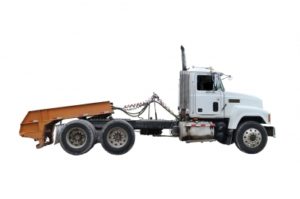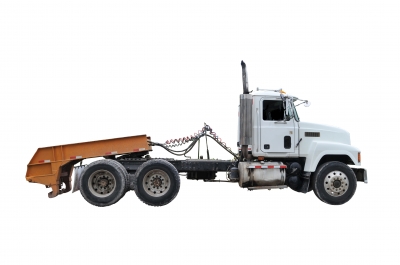 A bill has been filed in the Philippine Lower House exempting trailers and container chassis from being considered motor vehicles, effectively sparing owners the need to secure franchises for them.
A bill has been filed in the Philippine Lower House exempting trailers and container chassis from being considered motor vehicles, effectively sparing owners the need to secure franchises for them.
DIWA Partylist representative Emmeline Aglipay-Villar filed House Bill (HB) No. 747, or An Act Amending Republic Act (RA) No. 4136, Otherwise Known as the Land Transportation and Traffic Code.
In her explanatory note, Villar said RA No. 4136, which defines motor vehicles, has been the basis for the rulings of the Land Transportation Franchising and Regulatory Board (LTFRB) regarding which vehicles require a franchise.
However, she said the ambiguous definition “has been the reason for contradictory administrative rulings with regard to the status of trailers and container chassis for purposes of franchising regulations.”
“It has caused an unnecessary and costly confusion in the mercantile affairs of legitimate truckers, haulers, and leasing operators,” she added.
The lawmaker said HB 747 settles the ambiguities in RA No. 4136 and its governing regulations by removing trailers and container chassis from the ambit of franchising regulations, while still requiring them to register for identification purposes.
The bill seeks to amend Sections 3 (a) and 3 (c) of RA 4136 (Words and phrases defined) to read this way: Motor vehicle shall mean any vehicle propelled by any power other than muscular power using public highways, but excepting road rollers, trolley cars, street sweepers, sprinklers, lawn mowers, bulldozers, graders, fork-lifts, trailers and container chassis, amphibian trucks, and cranes if not used on public highways, vehicles which run only on rails or tracks, and tractors, trailers and traction engines of all kinds used exclusively for agricultural purposes.
“Trailers, or container chassis, with no power rating having any number of wheels, when propelled or intended to be propelled by attachment to a motor vehicle, shall not be considered to be motor vehicles for any other purpose, not subject to franchising requirements. However, they shall be registered with the LTFRB as ‘non-motorized vehicles’ for purposes of monitoring,” it further states.
Articulated vehicles, meanwhile, will mean any motor vehicle with a trailer having no front axle, and so attachment of that part of the trailer rests upon a motor vehicle, and a substantial part of the weight of the trailer and of its load is borne by the motor vehicle. Therefore, the bill said such a trailer will be called a semi-trailer, “and shall not be considered to be motor vehicles for any other purpose, not subject to franchising requirements.”
The Confederation of Truckers Association of the Philippines (CTAP) has earlier argued that trailers and container chassis are not motor vehicles and therefore don’t need to secure franchises. CTAP said a trailer or container chassis is not a separate vehicle by itself but a part of a prime mover or a tractor head. Thus, the franchise of a tractor head should cover its accessory, which is the trailer or container chassis.
“It is clear from the definition of law that a common carrier refers to a business entity engaged in providing transportation services to the public,” CTAP earlier said.
It added that an unattached chassis or trailer “is not itself capable of transporting goods and passengers and cannot be considered a common carrier within the purview of Article 1732 of the New Civil Code.”
In 2014, LTFRB issued Memorandum Circular (MC) No. 2014-008, which provides clarification in the enforcement of Joint Administrative Order (JAO) No. 2014-001 or the revised fines and penalties for colorum vehicles.
READ: Trucks with pending applications get provisional authority to operate — LTFRB
Under the MC, trailers need not secure a certificate of public convenience. No new orders suspending the 2014 have been issued yet. – Roumina Pablo
Image courtesy of Gualberto107 at FreeDigitalPhotos.net





